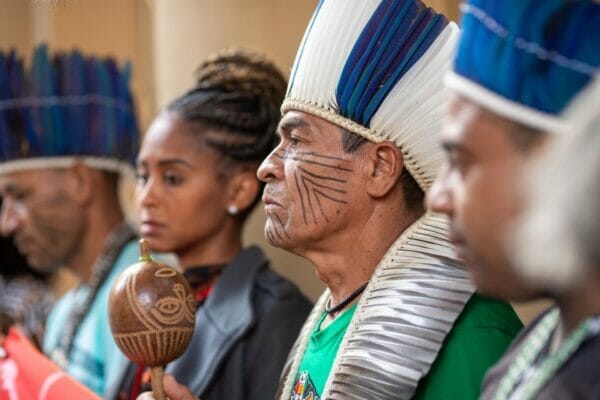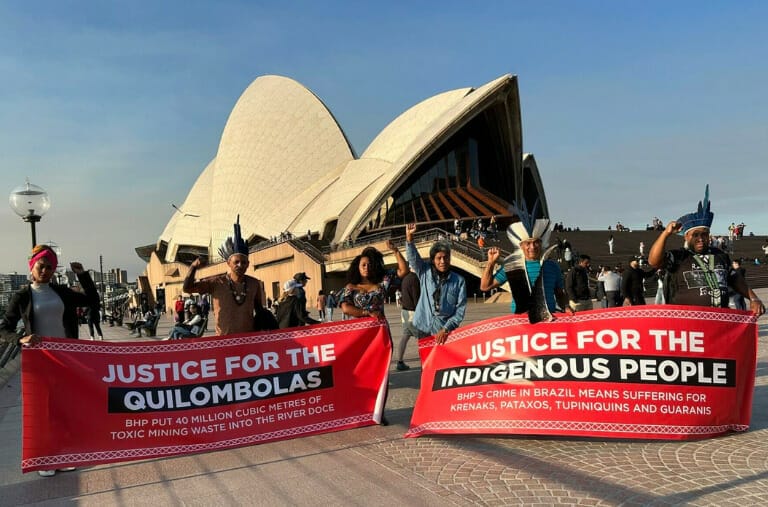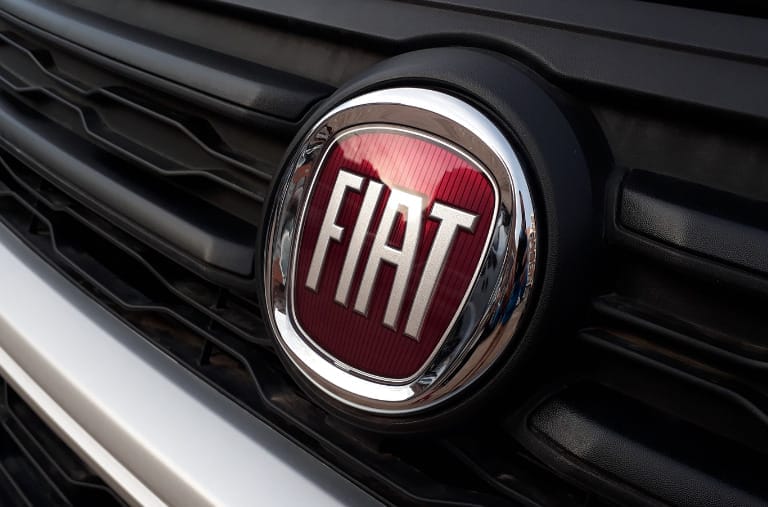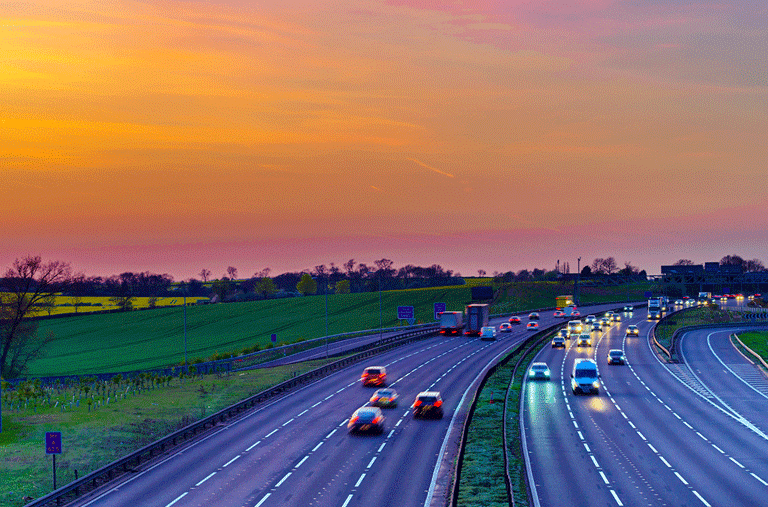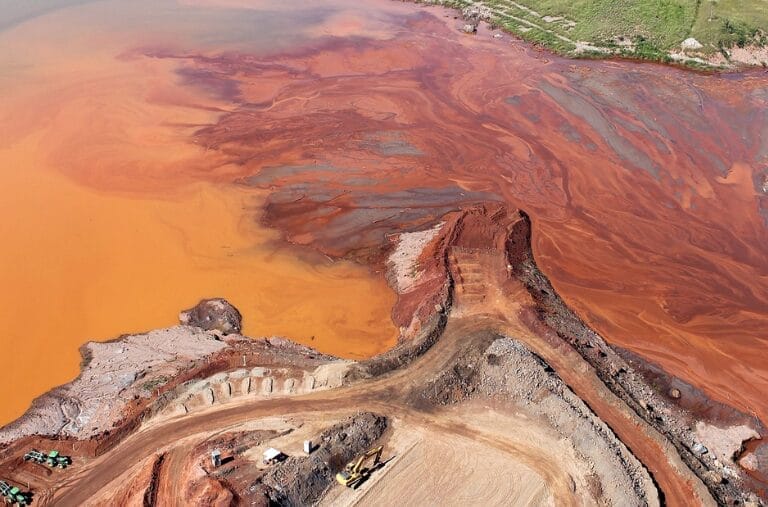A delegation of indigenous peoples and minorities from Brazil, alongside Pogust Goodhead representatives, visited Australia last month to build support in their fight for justice against BHP.
Over the course of a week, the delegation travelled to Sydney, Canberra and Melbourne, where they met with union reps, politicians, BHP investors and Australian First Nations people.
The communities represented included the Krenak, Guarani, Pataxos and Turpiniquim indigenous groups, plus two Quilombolas – descendants of African slaves.
The Mariana dam disaster
When the Mariana dam collapsed in 2015, it released over 40 million cubic metres of toxic mining waste into the Rio Doce – a sacred river for many indigenous groups, including the Krenak people.
Nearly eight years on from the Mariana dam disaster, these indigenous groups travelled to Australia to hold BHP to account.
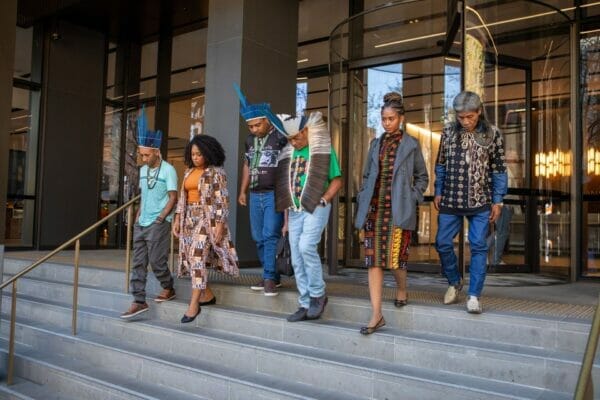
Sydney: Union representatives and the Catholic Church
In Sydney, the group met with Tony Maher and Grahame Kelly, National President and National Vice-President respectively of the Mining and Energy Union. The union has visited Mariana since the disaster and often comes into conflict with BHP in Australia.
The group also spoke to the Catholic Bishop of Paramatta, Western Sydney, who is very influential with the Catholic Church and was particularly supportive of our fight for justice.
Canberra: Meeting with politicians
In Canberra, the indigenous people began a series of meetings with parliamentarians at Parliament House. A couple of notable meetings included David Shoebridge, former barrister and Senator for the Greens, as well as Michael McCormack MP, former Deputy PM and current Shadow Minister for International Development. The group also met the Foreign Minister, Penny Wong, who addressed the group in Portuguese having spent a gap year in Brazil.
One of the politicians they met with, Senator Tony Sheldon, later spoke in the Senate about BHP’s dismal failure to provide adequate compensation to victims. Sheldon spoke passionately about his experience meeting the indigenous people and directly addressed the BHP leadership. “Do the right thing. Stop the nonsense campaign and its propaganda, pay your workers fairly and fairly compensate the communities you have destroyed in Brazil.”
You can watch the full speech here. He has also written to BHP.
While in Canberra the group also met with Michelle O’Neil, the influential President of the Australian Council of Trade Unions. They later visited the Brazilian Ambassador to Australia, Fred Arruda, and attended an event in their honour hosted by the Labor left coalition, where the indigenous people got to share their powerful story with a range of political stakeholders including the Deputy Chief Minister of the Australian Capital Territory.
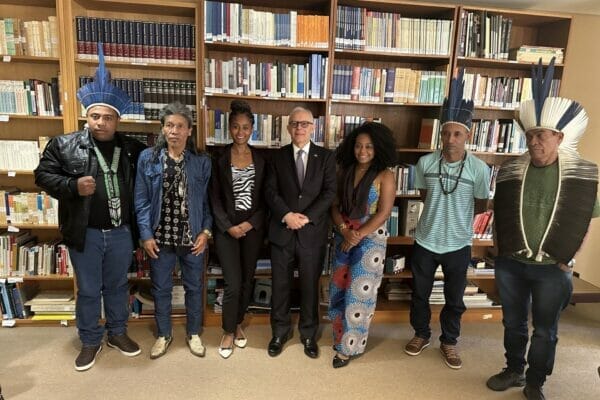
Media coverage
Throughout the week, Pogust Goodhead attracted widespread media attention from the AFR, the Guardian and the news.com.au. We also secured coverage in The Age and AFR in the form of a letter from clients to BHP workers.
Engaging with financial stakeholders
The final round of meetings was with financial stakeholders in BHP. On Friday, the group met with ACSI (Australian Council of Superannuation Investors) – international asset owners and investors with over AU$1 trillion under management. Pogust Goodhead staff addressed 15 of their members, all significant investors in BHP, and briefed them on the case to explain why it poses a major financial and reputational risk to those with significant investment in BHP.
Over the course of the week the group has shown huge courage in speaking out and has made many new friends, some with significant political and financial influence.
However, there is still much work to be done before BHP finally accepts responsibility for their actions.
BHP’s reputation and responsibility
On 18 September, as part of BHP’s Shareholder Q&A session, Geraldine Slattery, President Australia, said that as a company, BHP “essentially look to invest where we can contribute to the communities where we operate, and the environment, and we do that in a way that is aligned and supportive of our broader business priorities.”
She later said that the relationships BHP has with First Nations people and indigenous communities around the world are “integral to our ability to run our operations, grow our business and to the continuity of the business. And they’re integral, if you like, to the creation of long-term shareholder value.”
As the eight-year anniversary of the Mariana dam disaster approaches, it is evident that BHP have not lived up to either their social value commitments or indigenous peoples policy. Pogust Goodhead is calling on BHP to do the right thing and finally provide fair redress to victims.
BHP’s response to the Mariana dam disaster has been a display of poor corporate citizenship and an abrogation of corporate responsibility; standards that would not be acceptable in Australia. As one of Australia’s most iconic businesses, with a global reach and profile, the reputational risk of this inaction reverberates well beyond BHP and to Australia’s reputation more broadly.
The success of this trip, and Tom’s trip in May, is testament to the resilience of our clients, staff and all those who continue to work tirelessly to ensure that BHP’s crimes are not forgotten and that the victims of the Mariana dam disaster finally get the justice they deserve.
